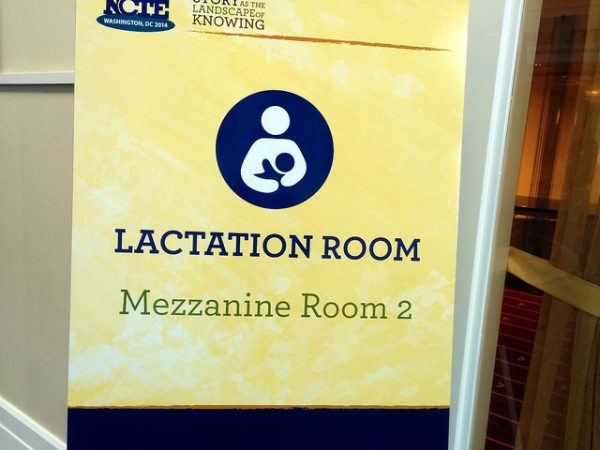
Recently, Utah and Idaho legalized public breastfeeding, finally making the practice lawful in all parts of the United States. Yet, even where public breastfeeding is legal — and has been for some time — breastfeeding mothers still face stigma. For instance, a pool patron and a staff member recently asked a breastfeeding mother in Mora, Minnesota to cover herself while at a public pool. Many have pointed out the contradictions between observers’ acceptance of women’s skin in certain public domains (like at the beach or on the cover of a magazine) and the public shaming women receive when their skin is exposed during breastfeeding.
In U.S. society especially, breasts are sexual symbols. And since motherhood is not highly sexualized, public breastfeeding presents a cultural contradiction in the United States. Because of these shared understandings of breasts as sexual, mothers must consciously negotiate spaces where they can breastfeed. For example, mothers report they engage in a variety of behaviors, like avoiding breastfeeding in certain spaces where they might face scrutiny or draping a blanket over the baby to hide their breasts, in order to not be viewed as sexual while breastfeeding.
- Cindy A. Stearns. 1999. “Breastfeeding and the Good Maternal Body.” Gender & Society 13(3): 308-325.
- Nicole Owens, Shannon K. Carter, Chelsea J. Nordham, and Jason A. Ford. 2016. “Neutralizing the Maternal Breast: Accounts of Public Breastfeeding by African American Mothers” Journal of Family Issues 39(2): 430-450.
- Michele Acker. 2009. “Breast is Best…But Not Everywhere: Ambivalent Sexism and Attitudes Toward Private and Public Breastfeeding.” Sex Roles 61: 476-490.
In other words, one reason people respond to public breastfeeding with discomfort and sometimes hostility is that breasts have a particular meaning within U.S. culture and breastfeeding in public challenges that meaning.

Comments 1
Mary Ellen Sandahl — September 8, 2018
Not just the US, by any means. You haven't seen breast-sexualization at its most openly blatant until you peruse the range of magazines at a big London news agent.